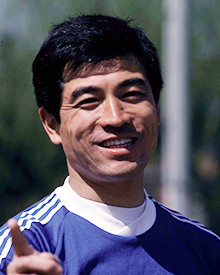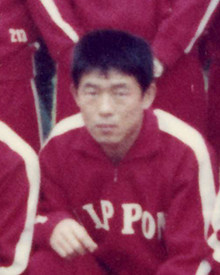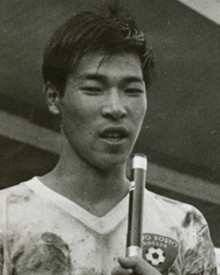Japan Football Hall of Fame
JFA Hall of Fame Inductee
MATSUMOTO Ikuo
Selected Inductees

- Born in Tochigi on 3 November 1941
Appears at the 2nd Asian Youth Championships in 1960, helping the Japanese national team to third place. Selected for the full Japanese national team at the age of 18 after entering Waseda University where, in his fourth year, he wins a treble of Kanto University League, the All-Japan University Championship, and the Emperor's Cup All-Japan Soccer Championship Tournament.
Plays a key role in four consecutive JSL titles (1965-68) for Toyo Industries as a speedy left winger. Plays mainly on the right wing for the Japanese national team at the Olympic Games Mexico City, appearing in four matches (including the third-place playoff) and helping his team win the bronze medal. Gains the absolute trust of manager Ken Naganuma for his great work rate and constant presence in both defence and attack. Wins a total of 58 caps for the Japanese national team, scoring 7 goals (between 1960 and 1969).
Wins a total of five JSL titles (including in 1970 as captain; Toyo Industries' record of five JSL titles is a joint record, shared with Yomiuri) and three Emperor's Cup All-Japan Soccer Championship Tournament titles. Awarded the JSL Star Ball Award in 1966, and named in the JSL's annual best XI. Makes a total of 88 appearances in the JSL First Division (all with Toyo Industries), scoring 31 goals (between 1965 and 1973).
Moves into coaching after retiring as a player, and is appointed as manager of Toyo Industries in 1976 after a spell as a coach at the club. Manages the Japanese national youth team at the 2nd World Youth Championship (now the FIFA U-20 World Cup) in Tokyo in 1979, at a time where football enjoyed little popularity in Japan. Despite being eliminated in the initial group state, the team inspires a generation of young Japanese people with its fighting spirit, generating greater hope for the future. Manages Kawasaki Frontale and Sagan Tosu in the post-1990 professional era, and demonstrates passionate leadership as he takes Frontale into J1 and Sagan into the upper reaches of J2. The dedication he showed in coaching young football lovers throughout his career still retains a valuable influence in modern day Japanese football.






